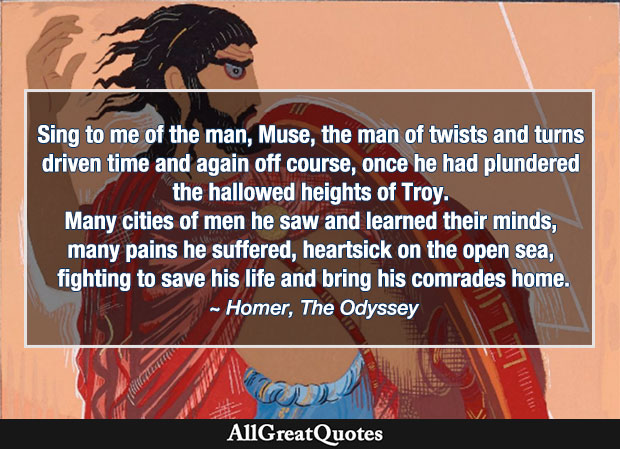Sing to me of the man, Muse, the man of twists and turns
driven time and again off course, once he had plundered
the hallowed heights of Troy.
Many cities of men he saw and learned their minds,
many pains he suffered, heartsick on the open sea,
fighting to save his life and bring his comrades home.
But he could not save them from disaster, hard as he strove –
the recklessness of their own ways destroyed them all,
the blind fools, they devoured the cattle of the Sun
and the Sungod blotted out the day of their return.
Launch out on his story, Muse, daughter of Zeus,
start from where you will – sing for our time too.
– Homer
The Odyssey, Book 1, lines 1-12. These are the opening words to Homer’s masterpiece, The Odyssey, one of the most important and enduring works of Western literature. We get a brief synopsis of the story of the epic poem. It chronicles the long journey home of Odysseus, after his time spent fighting in the Trojan War. There is much foreshadowing in the passage. We learn that Odysseus is driven off course many times on his perilous voyage home. He also tries to bring home his comrades, but fails. They are killed by the god Helios for their reckless action in consuming his cattle. At the beginning of the poem the narrator invokes the Muse – the Muses were ancient Greece’s goddesses of literature, science and the arts. The poet asks the Muse for inspiration to learn about the "man of twists and turns" and his arduous journey home. Written in the late 8th or 9th century BC, The Odyssey remains one of the all-time greatest quest stories.

